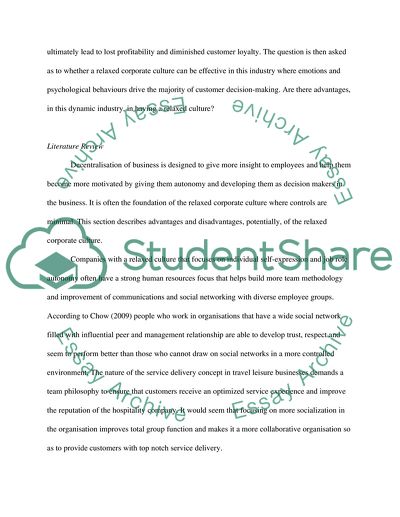Cite this document
(Evaluation of the Effectiveness of a Relaxed Corporate Culture Research Paper - 1, n.d.)
Evaluation of the Effectiveness of a Relaxed Corporate Culture Research Paper - 1. Retrieved from https://studentshare.org/social-science/1749692-evaluation-of-the-effectiveness-of-a-relaxed-coorporate-culture-on-the-employees-within-a-travel-leisure-industry
Evaluation of the Effectiveness of a Relaxed Corporate Culture Research Paper - 1. Retrieved from https://studentshare.org/social-science/1749692-evaluation-of-the-effectiveness-of-a-relaxed-coorporate-culture-on-the-employees-within-a-travel-leisure-industry
(Evaluation of the Effectiveness of a Relaxed Corporate Culture Research Paper - 1)
Evaluation of the Effectiveness of a Relaxed Corporate Culture Research Paper - 1. https://studentshare.org/social-science/1749692-evaluation-of-the-effectiveness-of-a-relaxed-coorporate-culture-on-the-employees-within-a-travel-leisure-industry.
Evaluation of the Effectiveness of a Relaxed Corporate Culture Research Paper - 1. https://studentshare.org/social-science/1749692-evaluation-of-the-effectiveness-of-a-relaxed-coorporate-culture-on-the-employees-within-a-travel-leisure-industry.
“Evaluation of the Effectiveness of a Relaxed Corporate Culture Research Paper - 1”, n.d. https://studentshare.org/social-science/1749692-evaluation-of-the-effectiveness-of-a-relaxed-coorporate-culture-on-the-employees-within-a-travel-leisure-industry.


